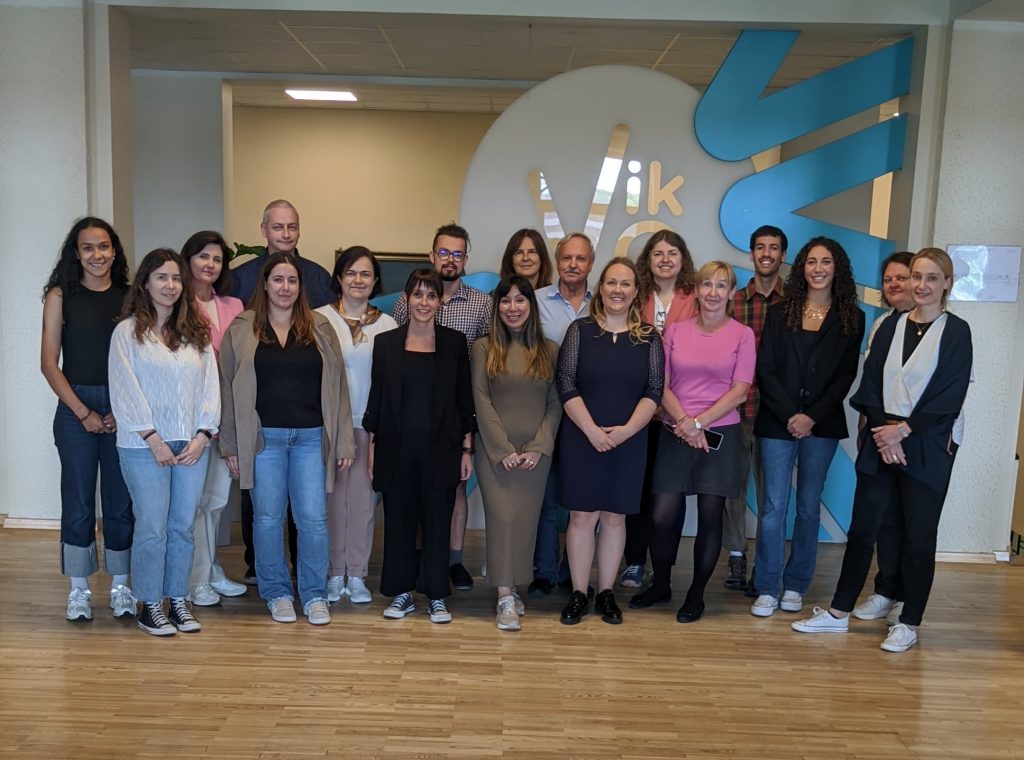
Sesión de intercambio de experiencias do proxecto Erasmus+ Design2Freedom en Vilnius (Lituania)
The CITIC team from the University of A Coruña — comprised of María del Carmen Miranda Duro, Betania Groba González, Patricia Concheiro Moscoso, and Valentina Bouzada Salias — participated last week in the third Learning, Teaching, and Training Activity (LTT3) of the Erasmus+ Design2Freedom project. This session took place from June 24 to 26 at Vilniaus Kolegija / Higher Education Institution (VIKO) in Vilnius, Lithuania.
During this experience-sharing session, university partners from Spain, Lithuania, and Slovakia presented and discussed the outcomes of their pilot studies aimed at implementing inclusive and human-centered design methodologies in higher education.
The main goal of the Design2Freedom project is to promote educational innovation and social inclusion through collaborative and participatory design, working alongside vulnerable communities to co-create inclusive solutions.
The pilot study conducted at the University of A Coruña (UDC), titled Design4Occupation, involved a total of 92 participants — including 61 students, 25 faculty members, researchers, and professionals, as well as 6 individuals with disabilities who contributed real-world challenge proposals. The initiative was carried out in collaboration with the partner organizations COGAMI and ASPACE.
Throughout the pilot, Occupational Therapy students worked in mixed teams with service users from these organizations, supported by a multidisciplinary group of faculty and students from Computer Engineering, Education, Speech Therapy, and Social Work. Together, they co-designed technological products and services aimed at enhancing autonomy and improving the quality of life for people with functional diversity.
The primary objective of the pilot was to integrate a human-centered design approach into the Occupational Therapy curriculum and pave the way for other disciplines to adopt this model. Furthermore, it aimed to raise first-year Occupational Therapy students’ awareness of disability inclusion through challenge-based learning. The project fostered the active participation of ASPACE and COGAMI users, offering students early and authentic interactions with individuals with disabilities, thereby promoting more meaningful learning experiences.
In addition, the programme seeks to foster synergies between Occupational Therapy and other disciplines to co-design innovative inclusive technologies that address real needs of people with disabilities. In doing so, the initiative tackles community challenges while contributing to a more inclusive and accessible society.
The human-centered model is defined as an approach that places the individual at the core of the process — listening first to understand their unique needs, goals, and preferences. Students described this methodology as the tailored adaptation of products, environments, or activities to each person, treating the user as an active agent rather than a passive recipient. This approach encourages greater engagement, comfort, autonomy, and ultimately, improved quality of life. However, the project also identified opportunities to reinforce a more holistic teaching perspective that includes the user’s context and environment.
Among the standout initiatives were award-winning projects such as Joan’s Dice Cup and an ergonomic spoon, recognized for their innovation and inclusive value. At the Lithuania workshop, CITIC researchers Betania Groba, Carmen Miranda, Patricia Concheiro, and Valentina Bouzada presented the outcomes of the pilot session held at CITIC in May, highlighting the progress made, methodologies applied, and key insights gained.
The event agenda featured presentations on inclusive design, human-centered models, creative methodologies such as Design Thinking, diversity in higher education, and the progress achieved by all project partners. The programme also included a tour of the university facilities and networking opportunities to foster sustainable partnerships.
Design2Freedom is a European initiative funded by Erasmus+ aimed at transforming higher education into an accessible and participatory space — preparing future professionals to design solutions that respond to the real needs of all people.





